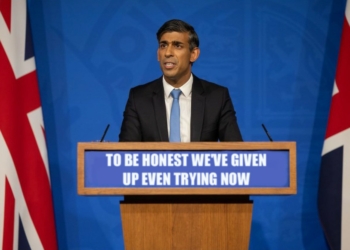Former President Donald Trump is facing multiple criminal charges for his role in the 2020 election and the January 6 Capitol riot. His indictment has raised questions about his political future and the impact on the Republican Party.
Trump’s Indictment: A Brief Overview
On August 1, 2023, a federal grand jury in Washington, DC, indicted Trump on four counts of conspiracy and obstruction of justice. The indictment alleges that Trump and his associates tried to overturn the election results, interfere with Congress’s certification of the electoral votes, and deprive Americans of their right to vote. The indictment also accuses Trump of spreading false claims about the election and inciting his supporters to storm the Capitol.
The indictment is part of the investigation led by special counsel Jack Smith, who was appointed by Attorney General Merrick Garland in February 2023. Smith is a former federal prosecutor and FBI director who has a reputation for being independent and impartial. He has also indicted several of Trump’s allies, including Rudy Giuliani, Steve Bannon, Roger Stone, and Michael Flynn.

Trump has denied any wrongdoing and called the indictment a “witch hunt” and a “hoax”. He has also vowed to fight the charges and run for president again in 2024. He has maintained his influence over the Republican Party and his loyal base of supporters, who have rallied behind him and donated millions of dollars to his legal defense fund.
The Legal Consequences for Trump
Trump’s indictment poses serious legal risks for him and his family. He faces up to 20 years in prison for each count of obstruction of justice, 10 years for conspiracy against rights, and fines of up to $250,000. He also faces civil lawsuits from several plaintiffs, including members of Congress, Capitol police officers, and election officials, who are seeking damages for the harm caused by his actions.
Legal troubles could also affect his financial situation. He is already under investigation by state prosecutors in New York and Georgia for tax fraud, campaign finance violations, and election interference. He also owes hundreds of millions of dollars in debt that will come due in the next few years. His businesses have suffered losses due to the pandemic, the loss of his presidential immunity, and the backlash from his political controversies.
Indictment could also jeopardize his presidential privileges and benefits. He could lose his security clearance, access to classified information, Secret Service protection, pension, travel allowance, and presidential library funding. He could also be barred from holding public office again if he is convicted and impeached by Congress.
The Political Implications for Trump and the GOP
Trump’s indictment has also raised questions about his political future and the impact on the Republican Party. Trump has indicated that he intends to run for president again in 2024, despite being banned from major social media platforms and facing low approval ratings. He has also endorsed several candidates who support his agenda and challenged those who oppose him in the upcoming midterm elections.
Political ambitions could face several obstacles. First, he could be disqualified from running for president if he is convicted and impeached by Congress. Second, he could face legal challenges from state authorities who could try to block his ballot access or certification. Third, he could face opposition from other Republican contenders who could challenge his leadership and popularity. Fourth, he could face a backlash from voters who are tired of his divisive rhetoric and policies.
Trump’s indictment could also have consequences for the Republican Party as a whole. The GOP is divided between those who support Trump and those who distance themselves from him. The party is struggling to define its identity and vision for the future. The party is also facing criticism from Democrats, independents, and moderate voters who blame Trump for undermining democracy and inciting violence.
The party’s prospects in the 2022 midterm elections and the 2024 presidential election could depend on how it handles Trump’s indictment and its aftermath. The party could either embrace Trump and his base or reject him and appeal to a broader coalition. The party could either focus on defending Trump or advancing its own agenda. The party could either unify or fracture under the pressure of Trump’s legal woes.
The Impact on American Democracy
Trump’s indictment is not only a legal matter but also a political one. It is a test of American democracy and its institutions. It is a challenge to the rule of law and the peaceful transfer of power. It is a reflection of the polarization and distrust that plague the nation.
This could have positive or negative effects on American democracy.
- On one hand, it could strengthen democracy by holding Trump accountable for his actions and deterring future misconduct by other leaders. It could also restore public confidence in the justice system and the electoral process. It could also encourage civic engagement and participation among citizens who care about their rights and responsibilities.
- On the other hand, it could weaken democracy by deepening the divisions and conflicts among Americans. It could also undermine public trust in the justice system and the electoral process by fueling conspiracy theories and misinformation. It could also provoke violence and unrest among Trump’s supporters who believe he is the victim of a political persecution.
This indictment is a historic and unprecedented event that will have lasting consequences for him, his party, and his country. It is a moment that will shape the future of American politics and democracy.



















